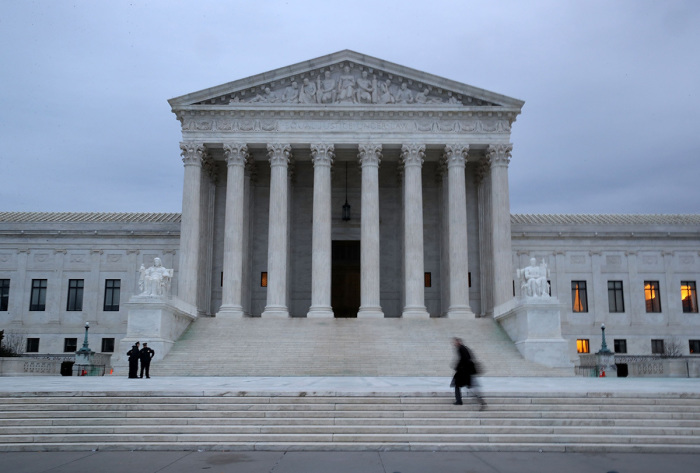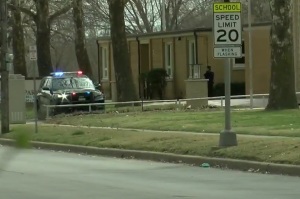Supreme Court weigh's city's ban on homeless camping, disregard of religious shelters

As the U.S. Supreme Court hears a case involving a city's ban on homeless camping on public property, a religious liberty law firm is urging the court to overturn a federal appeals court decision that excluded faith-based homeless shelters when counting available beds.
On Monday, the Supreme Court will hear oral arguments in the case of City of Grants Pass, Oregon v. Johnson. The case centers on whether a city’s ban on homeless camping on public property violates the “cruel and unusual punishment” barred by the Eighth Amendment.
The 9th U.S. Circuit Court of Appeals ruled that the city's laws imposed “cruel and unusual punishments,” citing not enough shelter beds to house the city's homeless population.
Becket, a legal group that specializes in religious freedom cases, filed an amicus brief, taking exception to the 9th Circuit's ruling in the case that did not include religious homeless shelters when counting available beds for the homeless.
“Becket offers this brief to explain that the Ninth Circuit’s novel interpretation of the Eighth Amendment was made possible only by grossly misconstruing the Establishment Clause,” stated the brief.
“Becket is concerned that the Ninth Circuit’s standard — which categorically disregards consideration of housing at religious shelters in part due to their ‘overall religious atmosphere,’ ‘Christian messaging,’ and ‘Christian iconography on the shelter walls’ — improperly relies on discredited reasoning.”
Becket objected to the 9th Circuit opinion’s use of the 1971 Supreme Court decision Lemon v. Kurtzman, which allows government involvement in religion provided that it serves a secular purpose, does not inhibit or advance religion and does not result in an excessive entanglement of church and state.
Known as the "Lemon Test," the standard has been rejected in more recent high court rulings, such as the 2022 Supreme Court ruling in Kennedy v. Bremerton School District, in which the court ruled 6-3 that a public high school football coach could pray on the field after games, and thus did not have to pass the three-pronged legal test.
“In place of Lemon and the endorsement test, this Court has instructed that the Establishment Clause must be interpreted by ‘reference to historical practices and understandings,’” wrote Supreme Court Justice Neil Gorsuch for the majority.
“Here, a government entity sought to punish an individual for engaging in a personal religious observance, based on a mistaken view that it has a duty to suppress religious observances even as it allows comparable secular speech. The Constitution neither mandates nor tolerates that kind of discrimination.”
In the amicus brief, Becket urged the Supreme Court to “reiterate that Kennedy meant what it said, and that lower courts, government officials, and litigants may conclude that government conduct violates the Establishment Clause only if it demonstrates the six hallmarks of historical religious establishments.”
The notion that the Lemon Test is no longer applicable is not universally agreed upon, as seen with a dissenting opinion in the Kennedy decision authored by Justice Sonia Sotomayor.
In her dissent, Sotomayor argued that it was “wrong” to overrule Lemon “entirely and in all contexts,” believing that the test still had value on some, albeit not all, church and state legal arguments.
“Neither the critiques of Lemon as setting out a dispositive test for all seasons nor the fact that the Court has not referred to Lemon in all situations support this Court’s decision to dismiss that precedent entirely, particularly in the school context,” wrote Sotomayor.
The Supreme Court is expected to issue a ruling by the end of June.





























